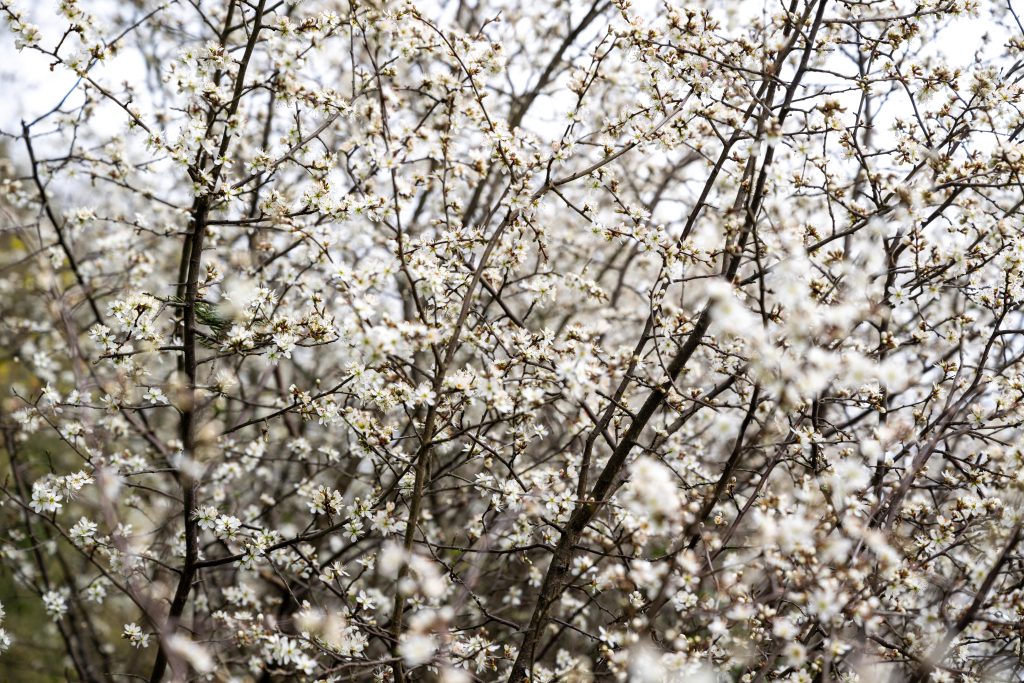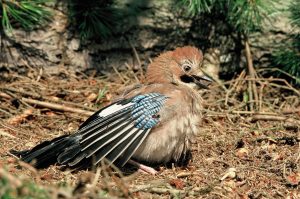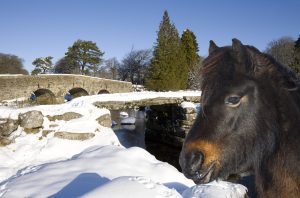Spring has sprung, so let’s hope for some dry weather
Our fascination with the weather is known far and wide, so when we find ourselves in the midst of a prolonged period of wet and sometimes windy weather, few are better placed to notice and comment on it than us Brits. All too often (and with good reason), we are less than complimentary about yet another run of wind and rain, given its impact on our local environment and our local wildlife. All too often, bird numbers are in decline if we have prolonged wet weather during the breeding season. But a recent report from Nature Scotland has shown that what is bad for one species isn’t always bad for all.
According to the report, the authors have seen an encouraging increase in some woodland birds since 1994. This includes an increase in the number of the woodland and garden visitor, the Chiffchaff. This resilient warbler, despite its rather dowdy appearance, has been making its presence known with its distinctive call more and more in many parts of the UK. The numbers of another regular garden visitor, the Greater spotted woodpecker, have also increased over the same period, a trend that seems to be national, so that we now have a resident population of around 140,000.
However, the report also brings to light the rather sobering reality of the decline in the number of Curlew and Black grouse, to name just two. These predominantly upland birds are thought to have suffered due to our wetter summers. Although they are not garden birds, they are of equal importance to those who visit our gardens and their decline is a stark reminder of the impact climate change is having on our wildlife.
Nesting activity is also shifting, something highlighted by a pair of Kingfishers who began nest building at Slimbridge in Gloucestershire in late February. I suppose if your diet is mainly fish, it doesn’t matter when you nest as long as the water level is not too high and the surface isn’t frozen. Sadly, this flexibility isn’t available to birds that feed on insects. This is another reason why, in the run-up to the breeding season, it is advisable to feed your local birds regularly. If our unpredictable weather continues, the birds may become reliant on what we provide.
At the time of writing, the clocks are due to go forward in a few days’ time, which is just as much a tangible indicator that spring has arrived as the explosion of hawthorn blossom, singing blackbirds and the arrival of puffins at the coast. Let us hope that this year will see us have a break from the continual conveyor belt of rain that comes in off the Atlantic. We could do with a break from it, our farmers could do with some dry weather, and so too could our wildlife.
© Phil Pickin
According to the report, the authors have seen an encouraging increase in some woodland birds since 1994. This includes an increase in the number of the woodland and garden visitor, the Chiffchaff. This resilient warbler, despite its rather dowdy appearance, has been making its presence known with its distinctive call more and more in many parts of the UK. The numbers of another regular garden visitor, the Greater spotted woodpecker, have also increased over the same period, a trend that seems to be national, so that we now have a resident population of around 140,000.
However, the report also brings to light the rather sobering reality of the decline in the number of Curlew and Black grouse, to name just two. These predominantly upland birds are thought to have suffered due to our wetter summers. Although they are not garden birds, they are of equal importance to those who visit our gardens and their decline is a stark reminder of the impact climate change is having on our wildlife.
Nesting activity is also shifting, something highlighted by a pair of Kingfishers who began nest building at Slimbridge in Gloucestershire in late February. I suppose if your diet is mainly fish, it doesn’t matter when you nest as long as the water level is not too high and the surface isn’t frozen. Sadly, this flexibility isn’t available to birds that feed on insects. This is another reason why, in the run-up to the breeding season, it is advisable to feed your local birds regularly. If our unpredictable weather continues, the birds may become reliant on what we provide.
At the time of writing, the clocks are due to go forward in a few days’ time, which is just as much a tangible indicator that spring has arrived as the explosion of hawthorn blossom, singing blackbirds and the arrival of puffins at the coast. Let us hope that this year will see us have a break from the continual conveyor belt of rain that comes in off the Atlantic. We could do with a break from it, our farmers could do with some dry weather, and so too could our wildlife.
© Phil Pickin



